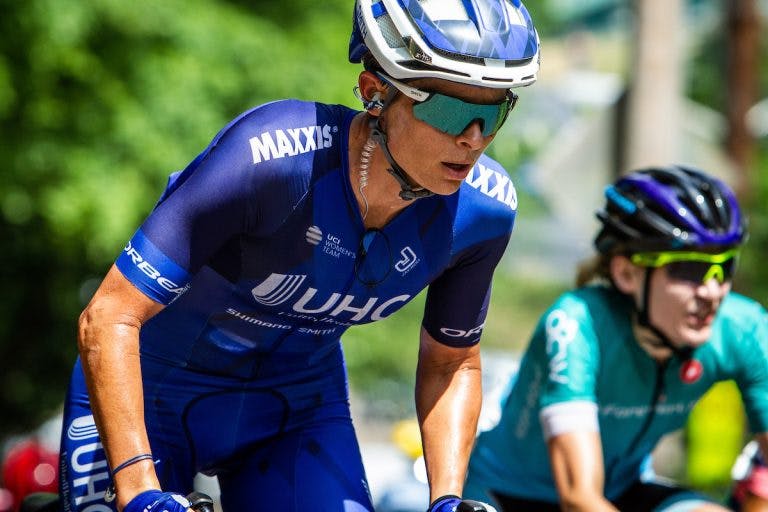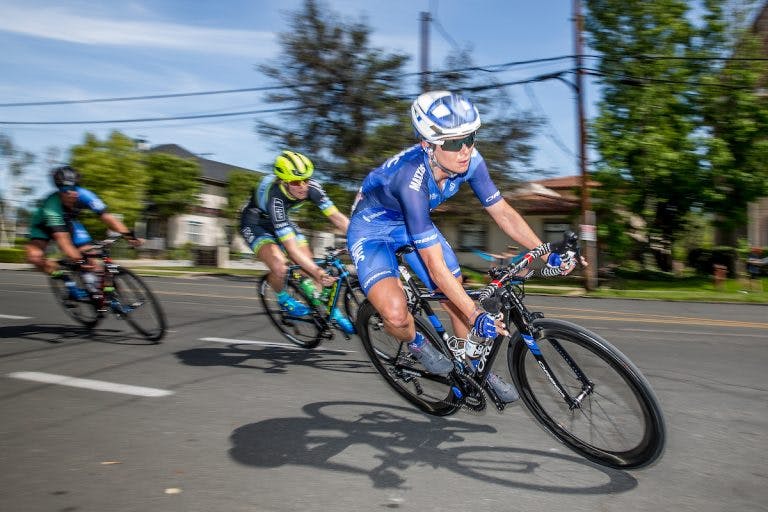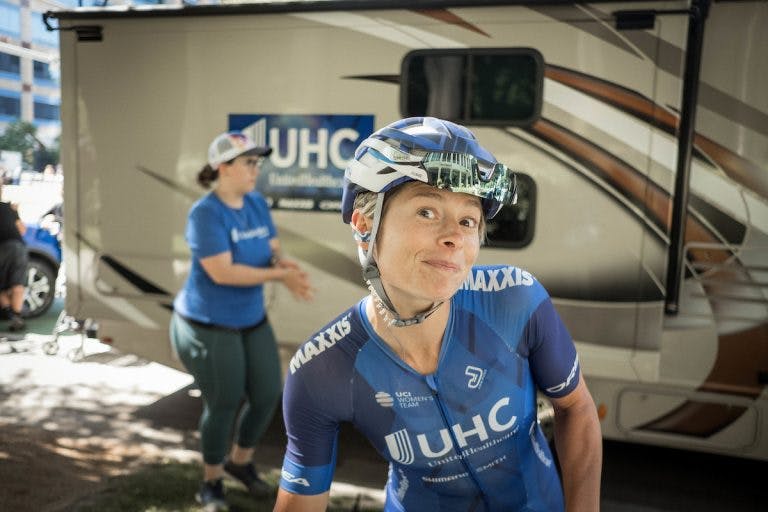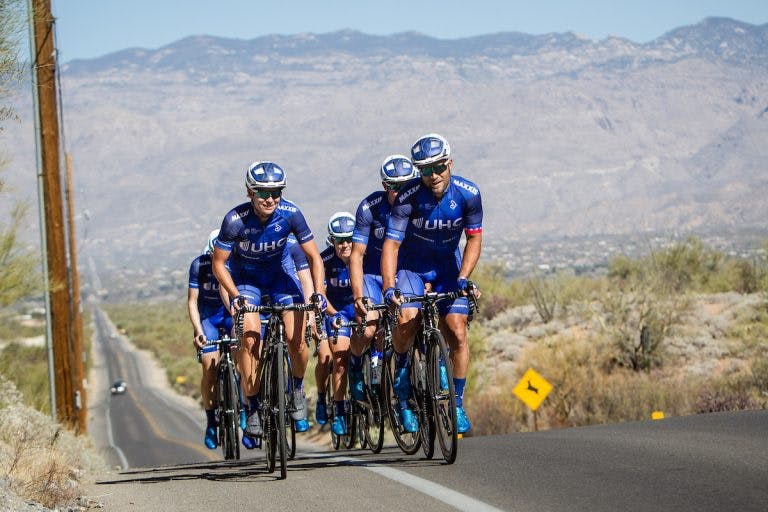Explore Our Network of Sites
Search
By:

Lauren Hall didn’t grow up with a bike, and didn’t get into cycling until after college. Her first exposure to professional riding came as a result of some crafty Googling by a friend, who found a team offering guests spots for a race. Though Hall entered the sport through a less traditional avenue than some of her peers, she now makes her transition to retirement following a career as a top performer nationally and internationally.
Hall originally had her sights set on a career as a professional soccer player. She found soccer at an early age, played through high school, on scholarship in college and semiprofessionally after graduation. But the professional contract never came, and in 2001 she started considering other options. Hall enrolled in culinary school, got a dog and, in an effort to keep herself and her yellow lab fit, took up running.
Not long after she started running, Hall completed her first marathon with her brother. Marathons got her thinking about giving triathlons a shot — but she needed a bike. “It took me a good 6 or 8 months to even go into a shop,” Hall says. “When I finally did, it was a store with a huge rack full of bikes and I was so overwhelmed that I walked out before the sales person even made it over to me.”
After some research, she finally returned to the shop and, with guidance from staff, bought her first bike: a red Masi. The shop team encouraged her to attend a weekly group ride. As a new rider, the group helped her learn routes, get comfortable changing flats and adjust to the dynamic of riding in a pack.
Hall’s experience has been that cycling is welcoming, but not recklessly so. “Other riders are generally interested in keeping you and the whole group safe,” she says. Her advice to new riders? To spend some time hanging at the back of the pack and learning as much as possible.

A few months after Hall started attending regular group rides, she started racing with the Louisiana and Mississippi Bicycle Racing League, LAMBRA. The summer of her first season, Hall raced Criterium Nationals. “To be a part of a team again was really exciting to me. It was fun to go every weekend with friends and race bikes, talk about bikes and get to hang out.”
Hall’s first exposure to pro cycling came when a friend Googled “professional women’s cycling” and learned that former World Time Trial Champion Amber Neben was offering guest spots on a team at the Redlands Classic.
“I had raced maybe a season back in Mississippi and had tried nationals at the end of the year, but I was still very much on the fringe of professional cycling and had no idea how it worked,” Hall says. “But I knew I was lucky to have made it on this squad so I didn’t want to mess it up. I got time cut on the first day, but having Amber there to help talk me through it was great. It was eye-opening and I found out I needed to go back and train a whole lot more!”

After the Redlands Classic, Hall kicked her training up a notch and continued to enter races. And her efforts started paying off. As she progressed in cycling, she built a support system from the other riders she trained and raced with. Hall says some of these riders became mentors by being there on the other end of many, many phone calls: “After a race, in between seasons or just talking about team stuff.” Hall names Jade Wilcoxson, Lauren Komanski, Rachel Heal and her coach Corey Hart as people that entered her life through the sport. “I’m very thankful to have met them.”
She takes a similar approach with riders she encounters now. Hall is friendly and easy going, and women know they can come to her if they need anything. She spends the winters training in Tucson, Arizona, and gets to interact with riders from various teams. “I’m super comfortable in the peloton and very approachable. I don’t think I’m intimidating at all. I am out there having a good time and I’m not afraid to joke with people or give advice in a race. I’m not trying to be a jerk about it I’m trying to help out because I have been there!”

Hall is active with the Home Stretch Foundation in Tucson which gives female racers an opportunity to have a home base for training. In her approachable way, Hall offers support by just being there and being herself. “It’s just a matter of hanging out every day and saying ‘hey how you doing, you need anything?’ That lends itself to a lot of good conversations.”
Hall has no firm plans for what she will do now that she is retired. She does know she wants to remain connected to cycling and to the Homestretch Foundation, continuing to assist women in reaching their professional cycling goals. With a reputation as someone who is helpful, friendly and easy to get along with, an opportunity is sure to come her way.